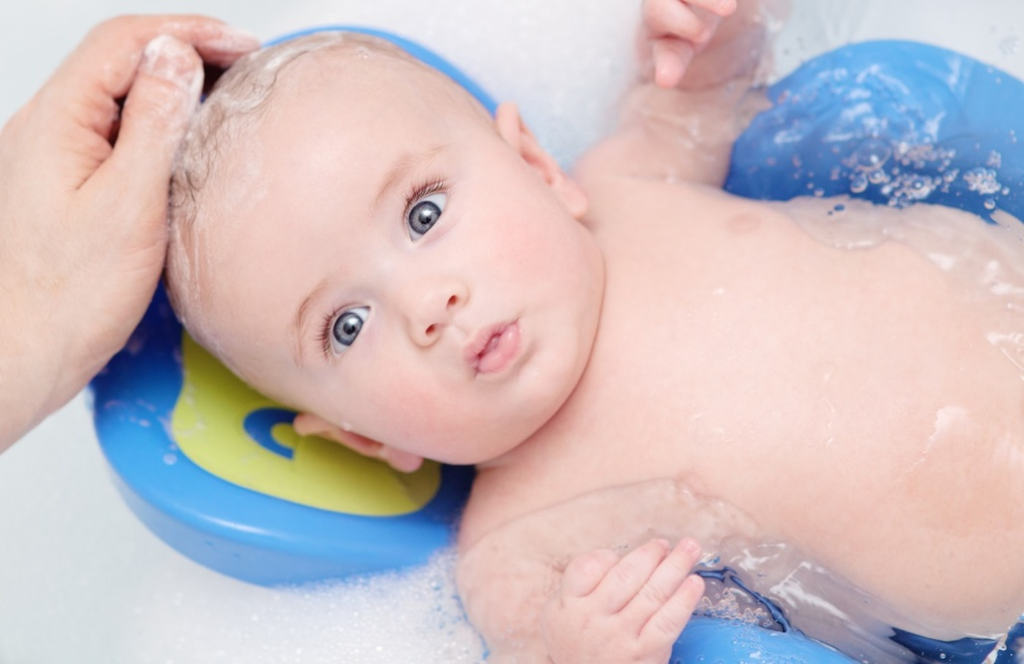Bathing a newborn is not only a crucial aspect of child care but also a unique opportunity to strengthen the emotional bond between the child and their parents. This process may seem daunting, especially for first-time parents, but with the right knowledge and preparation, it can become an enjoyable and safe activity for everyone involved.
Preparation for Bathing
Before you start the bathing process, make sure you have everything you need within reach. You will need:
- A baby bath or tub.
- Clean, soft towels.
- Baby soap and shampoo with a neutral pH.
- Clean clothes and diapers.
- Cotton pads and a soft sponge for gentle cleansing.
Choose a warm and draft-free place for your baby’s bath. The water should be at a comfortable temperature, around 37°C (98.6°F). Use your elbow or a special thermometer to check the water temperature.

Bathing Technique
- Beginning the Process. Gently lower your baby into the water, supporting their head and neck with one hand, and with the other, slowly lower their body. Pay attention to the baby’s reaction; the first baths should be short to allow the baby to get used to the water environment.
- Using Baby Care Products. A minimal amount of baby soap or shampoo is sufficient to keep the baby’s skin and hair clean. It’s important to avoid getting soap in the baby’s eyes and ears.
- Rinsing. Gently rinse your baby using a cup or your hand to pour soap-free water. Ensure that all bathing products are completely rinsed off the baby’s skin and hair.
- Getting Out of the Water. Wrap your baby in a clean, soft towel right after the bath, patting the skin dry gently without rubbing. This will help avoid irritation to the baby’s delicate skin.
Frequency of Bathing
It is not recommended to bathe newborns every day due to the risk of drying out their skin. Bathing 2-3 times a week is sufficient. On other days, you can simply wipe the baby with a damp towel, especially around the face, hands, and diaper area.
Safety Tips
- Never leave your baby unattended in the water.
- Avoid using hot water for bathing.
- Ensure all necessary supplies are within arm’s reach.
- Check for sharp objects or slippery surfaces around the bathing area.
By following these recommendations, you can make bathing a safe and pleasant experience that contributes to your baby’s healthy development.
